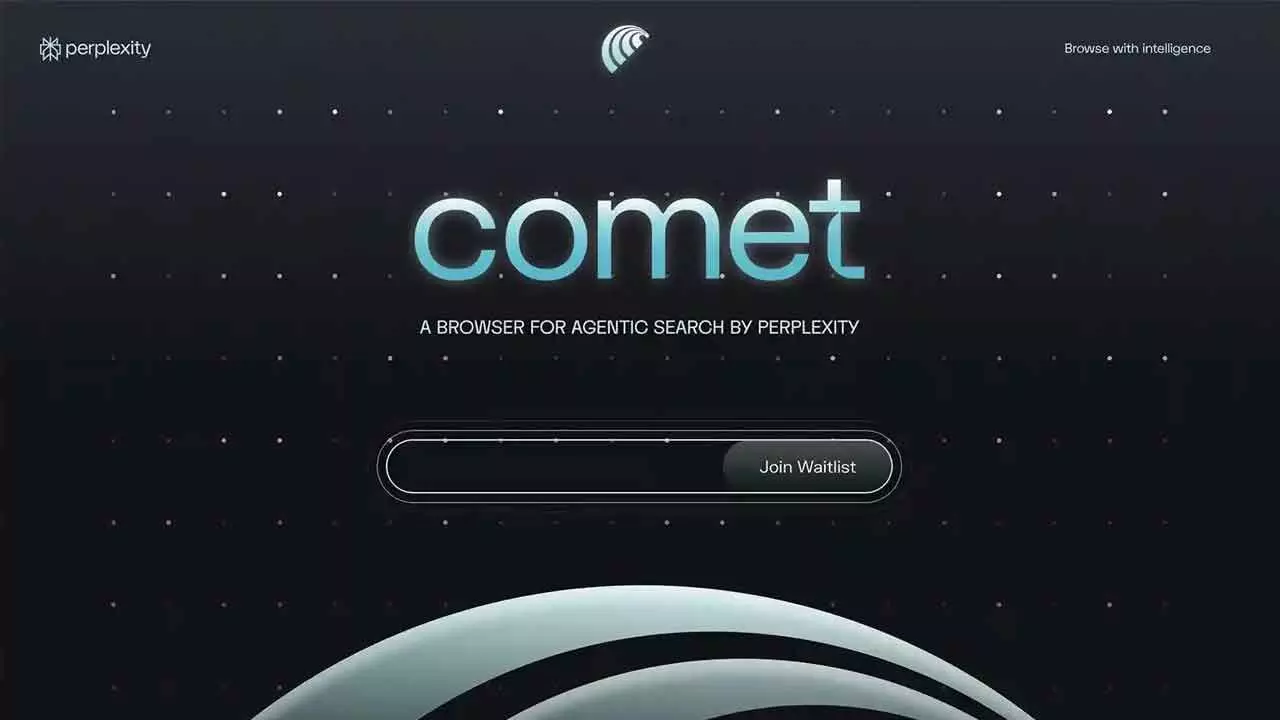Perplexity’s Comet Browser Becomes Free — Here’s What It Can Do
Perplexity Comet browser goes free, launching Plus plan with news curation. Know how this AI tool may replace search engines forever.
image for illustrative purpose

Perplexity, the fast-growing AI startup, has opened general access to its Comet browser, removing the earlier Rs 16,000 ($200) monthly paywall. The browser, previously limited to select invite-only users and “Max” subscribers, can now be downloaded and used by anyone at no cost. Alongside the free version, the company has introduced Comet Plus, a Rs 420 ($5) per month plan offering exclusive curated news feeds from partner publishers.
The company’s move signals a clear intent to scale usage over individual user margins. By expanding access, Perplexity positions Comet not just as a premium AI feature but as a core platform in its ecosystem — one that blends AI-driven search, productivity tools, and context-aware assistance.
Comet represents a change in how users interact with the web. Instead of showing pages of blue links, it responds directly to user questions with concise answers — and, when needed, performs actions on their behalf. The model combines search and task execution into one interface, shifting from “search and click” to “ask and act.”
Built on Chromium, Comet supports existing browser extensions, ensuring users can continue using their familiar tools. The platform also remembers past interactions, enabling it to carry context across tabs, answer follow-up queries, and assist in research or multitasking without repeating inputs.
A key component of Comet is its sidebar assistant, which can summarize articles, translate text, extract points from long pages, compare information, or cross-check data across multiple sources. Early users report it can also manage inboxes, schedule tasks, and draft email replies when linked to a connected account.
However, Perplexity’s terms indicate that user data processed by the assistant is stored on its servers to enable these features. Experts advise connecting only secondary or professional email accounts for testing, rather than personal ones, to maintain privacy.
Beyond browsing and automation, Comet can compare product prices across multiple e-commerce platforms. In test runs, it located lower prices within minutes by scanning similar listings on rival sites. Users can also plan routes or errands directly through prompts — for example, mapping directions between two locations while adding coffee stops or landmarks. The AI overlays these routes in the browser in real time, offering a hands-free planning experience.
With this rollout, Perplexity enters the broader race for AI-powered browsers, where players like Opera’s Neon have already made early moves. Both companies are aiming to redefine how users navigate the “agentic web,” where browsers act as decision-making partners rather than passive interfaces.
Perplexity’s expansion of Comet to all users marks a major step in making AI browsing mainstream. While the browser promises higher efficiency and intuitive search experiences, users are reminded to be cautious about sharing personal data as such tools continue to evolve.

